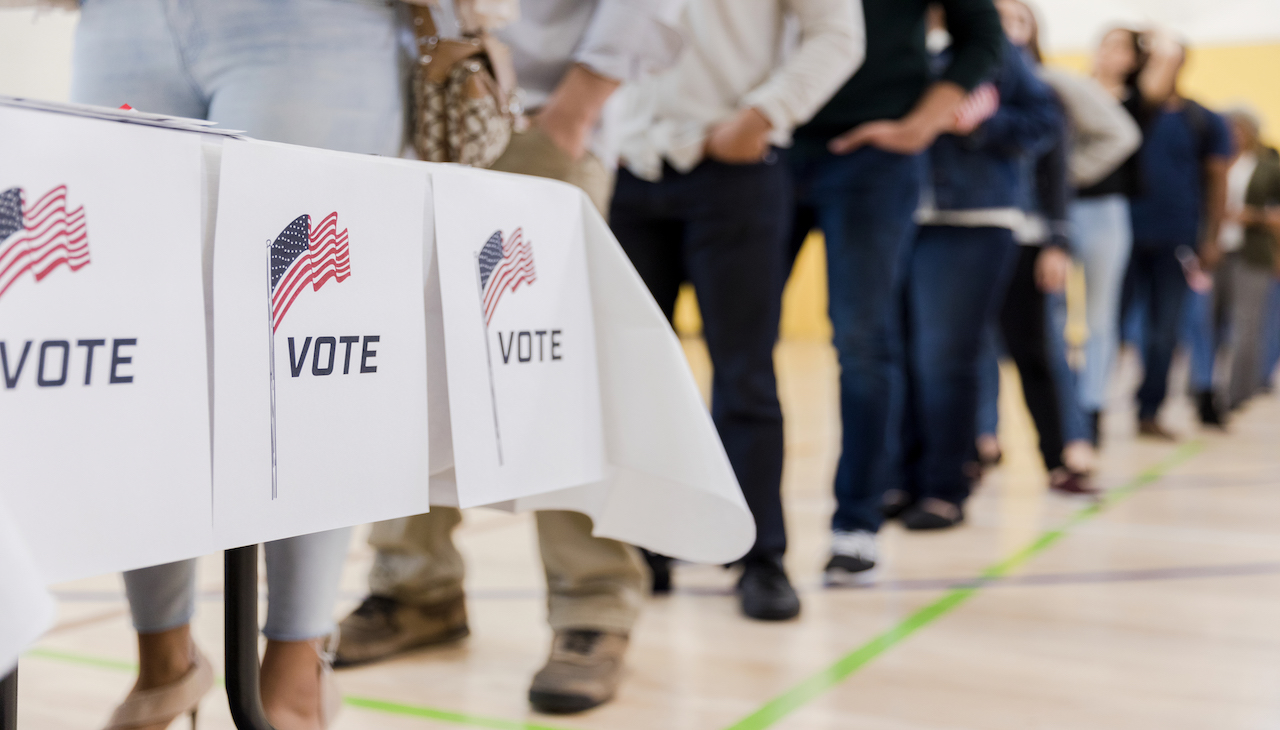
GOP-led lawsuits related to voting surged this year
A study conducted by a progressive legal advocacy group found voting rights are a highly contested subject in the nation’s courts.
A report released by Democracy Docket in mid-September found that GOP allies have heightened efforts this year to challenge voting legislation, with almost five times the amount of recorded lawsuits from last year.
September of 2022 marked a legal crux for voting legislation with 41 lawsuits in court dockets nationwide, which account for over half of all voting cases tracked for the year, the group found.
In contrast, there were seven lawsuits filed in 2021 related to voting legislation, filed by Republican groups, whereas this year there are a total of 76 lawsuits leveled by “national and state Republican parties and affiliates, GOP lawmakers and officials, Republican voters or known conservative legal groups,” Democracy Docket observed.
One case out of Chester County, in Pennsylvania, was a suit raised by America First Legal — a conservative legal group founded by former Trump staffers Mark Meadows and Stephen Miller — challenged the County Board of Elections over claims of voter fraud in drop-off boxes.
AFL’s motion alleged the “fundamental right to vote will be lost because their votes will be canceled by invalid votes delivered by third parties and the election will not be free or fair because invalid and void votes will be counted.”
Supporting documentation included in the suit incorporated still images of what appeared to be a person dropping off multiple ballots, and according to AFL, diluted a legally cast vote, though there was no background or context included in the footage.
AFL requested that ballot boxes be staffed at all times to prevent undue voting in drop-off sites, or that sites only be available during business hours to allow for staffing to occur, thus counting on county resources to do so.
The Alliance for Retired Americans, an organization that intervened in the lawsuit, argued the requested injunction interfered with a retired person’s ability to lawfully cast their vote, given many of them rely on external assistance to reach the polls, and in some cases, such assistance would only be available outside of the proposed business hours.
ARA further argued that the conservative group presented no legal basis for what they purported as undue votes caught by the footage in the motion.
RELATED CONTENT
“Notably, plaintiffs make no allegations about whether those voters who appear to have deposited multiple ballots possessed the required official written authorization allowing them to return another voter’s ballot, and the video footage would not reveal whether that was so,” ARA argued.
The ARA also pointed to the timing of the lawsuit, leveled on Sept. 15, with unusual proximity to the 2022 midterm elections. AFL later discontinued the lawsuit on Oct. 7, effectively closing the matter.
The Meadows-Miller lawsuit mirrors a heightened effort to change election operations on the basis of undue voting, alluding to illegal practices at the ballots, although little to no data or legal precedent supports the allegations.
In Arizona, two pieces of legislation were introduced by the Republican General Assembly that sought to invalidate voter rolls if county officials found credible evidence of election tampering, but the measure was struck down in court since the legislature had failed to define a logistical process to support the provisions.
And in Wisconsin, the state Supreme Court made drop-off boxes illegal, creating even bigger obstacles for individuals with a disability to lawfully cast their ballot. Although under the ADA, disabled persons may continue to authorize a proxy via the election board’s own procedures.
Democracy Docket expects a continued pattern of lawsuits in the coming months in accordance with the current surge and stated the lawsuits do not seem to be related to election cycles.
“Even though the first few months of the COVID-19 pandemic created a unique legal environment where a number of voting laws were litigated prior to the general election, 2022 GOP-filed litigation is significantly outpacing 2020 already,” Democracy Docket said.










LEAVE A COMMENT: